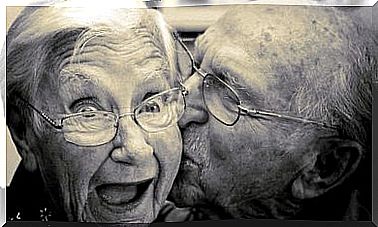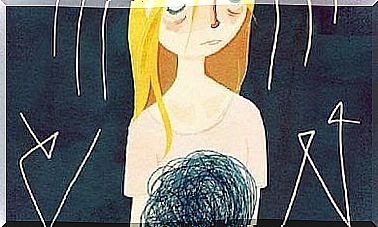Stitches In The Heart: Should I Be Concerned?
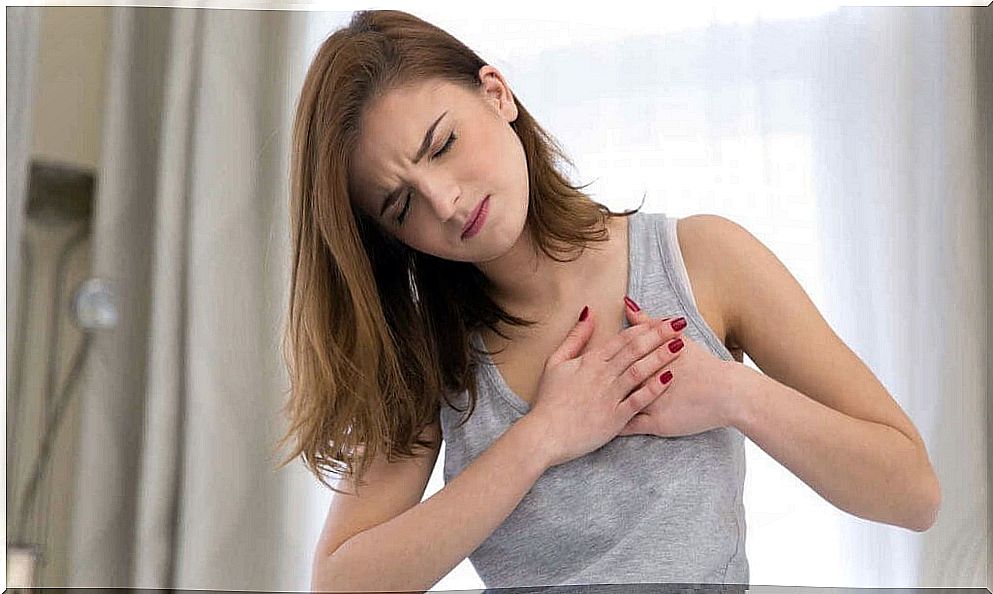
Feeling jabs in the heart suddenly and intensely is something quite common among the population. Now, however recurrent it may be, it always raises a certain alarm and even fear. Am I having a heart attack? What if it is angina pectoris? These are usually the most frequent questions that come to us when we experience that sudden chest pain.
It should be noted first of all that this feature is a common symptom of anxiety processes. It usually lasts 5-10 minutes and goes away on its own. However, the most appropriate thing in all cases is to rule out possible heart ailments or alterations. Therefore, it is advisable to go to our doctor to undergo an examination.
It is also interesting to know that these chest punctures can be due to multiple causes, including, for example, digestive problems and even muscle and bone conditions such as costochondritis, a disease of the cartilage of the rib cage. By this we mean that it is always correct to have a diagnosis that allows us to rule out diseases and ailments.
On the other hand, there is a fact that tends to occur frequently. When physical and organic problems are ruled out and anxiety is revealed to be the source, many people experience some perplexity. The symptoms associated with these disorders are very intense and hence, it is difficult to assume that this intense pain has a mental trigger. Therefore, let’s see more data below.
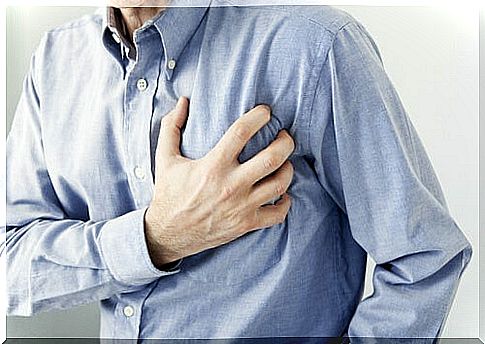
Stitches in the heart, symptom of anxiety
There is a striking fact that they reveal to us from Boston University and Harvard Medical School. In this study led by Dr. Jeff H. Human, they tell us that 1 in 4 people who go to the emergency room thinking they are having a heart attack are actually having a panic attack. Punctures in the heart is one of the most common associated symptoms.
The data itself is significant, which undoubtedly indicates the great impact that anxiety disorders have among the population. That anxiety-related chest pain doesn’t last more than 5-10 minutes. It is a brief experience, but it is often lived intensely and more so if it is accompanied by the symptoms associated with panic attacks. Let’s see, however, what characteristics the punctures in the heart present.
Why do I feel that throbbing pain in my chest?
On average, punctures in the heart usually appear as follows:
- They appear without the need to make any effort. Sometimes, they can arise even in the most common situations and without there being a distressing or anxious situation, such as while we eat, talk on the phone or watch television.
- The pain is intense. They are pangs in the heart that prevent us from breathing normally.
- The experience is brief and goes away on its own.
The cause that originates this experience is basically due to two reasons:
- Muscle tension. The heart is still just another muscle in our body. When we have been feeling anxiety for days or weeks, that emotion tends to accumulate, to remain impregnated in our body. Finally, and when we least expect it (especially when we are relaxed) the muscles react in the form of pain, of those classic punctures in the heart.
- Breathing and anxiety disorders. Another aspect that we must take into account is our breathing pattern when we are anxious. It is more accelerated, the intercostal muscles and those around the chest suffer alterations and are evidenced in the form of punctures. Likewise, that altered breathing generates an excess of gases that also translate into throbbing pain.
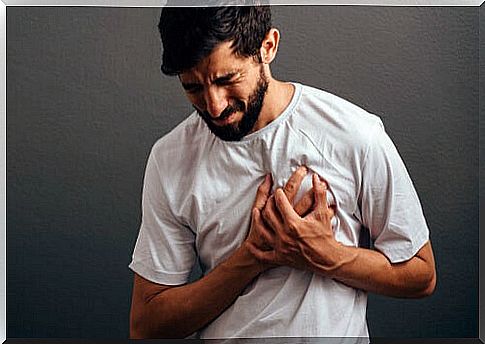
What other causes can cause chest pain?
As we have pointed out at the beginning, the most appropriate thing when we suffer punctures in the heart is to go to our doctor. Anxiety is a psychological disorder that does not show up on X-rays or blood tests. Therefore, this will be the diagnosis that we will receive in the event that all those ailments and diseases that also occur with these symptoms are ruled out, and that for their part, do present concrete and observable clinical signs.
These are, on average, the other physical and organic (not mental) causes associated with chest pain.
A heart disease
When a person has a heart condition (heart attack, angina, etc.) it is common for them to experience the following symptoms:
- Pressure, burning, or tightness in the chest
- Crushing pain that extends to the back, neck, jaw, shoulders, and one or both arms
- That pain does not go away, but becomes more intense to the point of losing consciousness in some cases.
- You experience drowning, shortness of breath …
- Cold sweat
- Dizziness
- Nausea or vomiting
Digestive problems
Stitches in the chest can also be due to disorders of the digestive system. The most common are the following:
- Heartburn.
- Disorders and diseases of the esophagus.
- Gallbladder or pancreas problems (inflammation, gallstones, etc.).
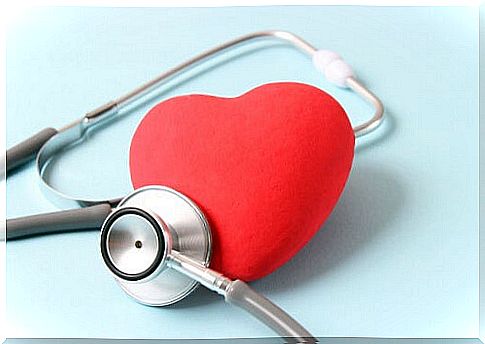
Muscle and bone causes
- Costochondritis. It is a disease located in the cartilage that joins the ribs to the sternum, which becomes inflamed and causes pain.
- Diseases such as fibromyalgia also cause chest pain.
Lung problems
Another factor that specialists should rule out are lung problems, the following being the most common:
- Pulmonary embolism
- Pleuritis.
- Lung collapse
- Pulmonary hypertension.
To conclude, as we have seen, this clinical reality can have multiple origins. However, in most cases it is due to anxiety. Let us always try to have a good diagnosis and learn to handle as soon as possible that stress and anxious processes of the day to day that so cloud our quality of life.




